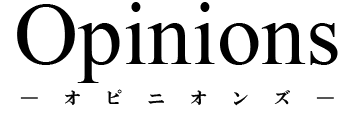
- 記事一覧
- ゲストライター記事一覧
- “Business as usual” amidst the climate crisis 気候危機でも「いつも通り」
“Business as usual” amidst the climate crisis 気候危機でも「いつも通り」

日本語訳は英文の後に掲載しています。
Around the world, justice movements have been increasingly pressuring governments to address the climate crisis. However, it was barely mentioned in the recent Japanese elections. This is despite the fact that:
●Japan is historically responsible for being the fifth largest cumulative emitter of CO2. The disproportionate impact of the climate breakdown in the Global South has been predominantly caused by the historical emissions of the Global North, including Japan [1].
●In 2020, climate-related disasters such as floods, storms, landslides, and wildfires displaced 30.7 million people around the world. This was three times more than the displacement caused by conflict and violence (Red Cross, 2021).
●Increasingly, these impacts will be felt more acutely in Japan:
3.9 billion people will be at risk of extreme heatwaves by 2040 around the world, including 30-40% of the Japanese population if current emissions continue.
Sea level rise will put 300 million people at risk of coastal flooding and displacement by 2050, particularly in the Asia Pacific.
To avoid the “tipping point” of irreversible climate catastrophe, emissions must be sharply reduced to limit further global heating (below 1.5℃ from pre-industrial levels). This requires complete decarbonation by 2050, i.e. no more fossil fuels can be burned. While gas and oil must also be rapidly phased out, the UN urges OECD countries like Japan to end the use of coal entirely by 2030.
Yet, the recent elections are telling of Japan's “business as usual” attitude in the face of this existential crisis. This is not specific to Japan. The “greenwashed” COP26 evidenced this on its disproportionate inclusion of fossil fuel lobbyists at the exclusion of civil society, as well as the insistence of the EU, UK, and US to exclude oil and gas as fossil fuels to “phase out”, as they still choose to depend on it.
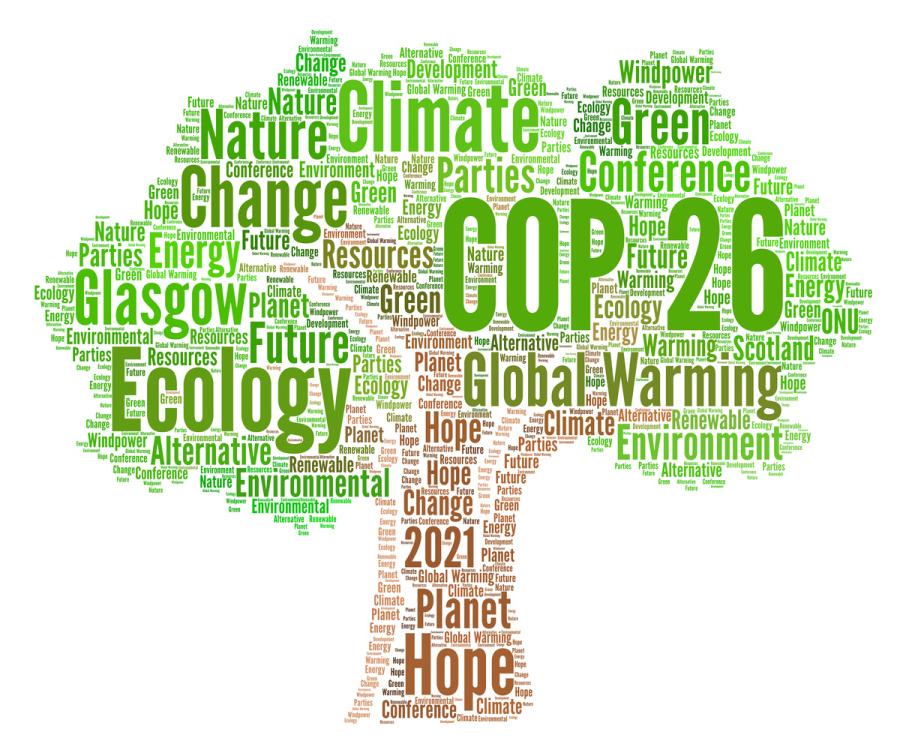
In Japan, what is concerning is that the climate crisis still suffers a lack of credibility as an emergency at the mainstream political level. Just a week prior to the election, the former PM Aso “gave thanks” to climate change for “making rice tastier” in Hokkaido. Or, at the 2019 COP25, the former Environment Minister of Japan stated, “In Japan, coal power is not seen as problematic as the international community does” (Vox, 2019).
●Coal emits the largest amount of CO2 out of all energy sources (followed by oil and gas)
●Japan is the 5th largest CO2 emitter globally (coal makes up around 40% of its emissions)
This lack of awareness is apparent in the fact that Japan is the only G7 country still actively pushing to keep coal as an energy source domestically and internationally (E3G, 2021).
●Currently 9 coal-fired plants are under construction to add to the 165 plants in operation in Japan, with no plans for decommissioning (Japan Beyond Coal, 2021). The Ministry of Economy, Trade and Industry’s future energy source plan shows coal making up 19% of the national supply structure in 2030.
●The Japanese government (JBIC/JICA) have been one of the biggest providers of public finance for fossil fuel projects across Asia ($10.9 billion each year on average from 2018-2020), despite local opposition for health and climate concerns (Tucker, 2020) [2]
●In the past 2 years, the top 3 global lenders to the coal industry have all been Japanese “megabanks” (collectively amounting to around $76 billion in loans) [3]
So, it comes as no surprise that a leak of comments to the draft IPCC Sixth Assessment Report showed Japan, along with Australia, Iran, and Saudi Arabia, lobbying against climate action. The report assesses the options to limit global heating; emissions must peak by 2025, and coal and gas-fired plants must be decommissioned by 2030 to keep the Paris Agreement 1.5℃ goal within reach. Rejecting the call for a “rapid phase out of fossil fuels”, Japan reportedly requested sections of this report be taken out for “policy neutrality” (Greenpeace, 2021).
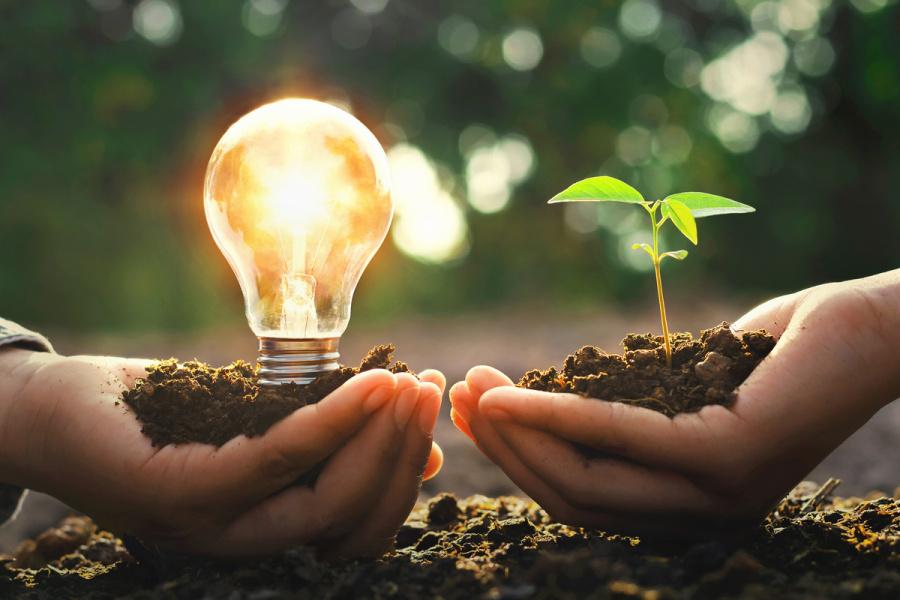
Such actions to continue the use of coal and other fossil fuels, while clean alternatives of renewables (e.g. biomass, wind, solar, hydro, geothermal) are increasing in availability and cost efficiency tells us that this crisis is not inevitable. Like the very system of exploitation at the root of this crisis, it is not passive; it is actively chosen by and to benefit those in power. The fossil fuel industry continues “business as usual” because they are backed by financial institutions and enabled by government policies pandering to profit.
If Japan chose to, it could be in line with the 1.5℃ goal. To do so, transformational changes must take place in all sectors by 2030 by ending its use of coal, reducing energy consumption, and switching to local renewable energy. A report by Climate Action Tracker on Japan states that while it will be challenging, it can still be achieved (CAT, 2021).
For this to occur, the mainstream political level in Japan must be pressured from below to recognise the climate breakdown as a crisis, a political imperative. What can be recognised as an emergency in need of urgent addressing depends on how it is discussed in everyday conversations. This includes coming to a clear understanding who is accountable. There is a need to discuss climate breakdown as an ongoing failure of governments, including ours, to enact policies owning up to the historical and continuing responsibilities they have towards humanity.
On a broader scale, as has long been said by the activists of the Global South, indigenous leaders, and global justice movements, the way we relate to nature and to each other must be reimagined. The deeply unjust and inequitable system of extraction, exploitation, and consumption [4] must be restructured in order to sustain humanity’s life support systems.
Recognising that the climate crisis is an ongoing consequence of active political choices – to maintain this structure that profits the few and hurts the many – enables us to discuss, mobilise, and vote differently. That includes thinking about who to ally with and how causes are interconnected. It requires us to reflect on what is owed to whom, whether to young people, communities who have least contributed to the climate breakdown, or to ourselves. It allows us to reimagine the possibilities of how things can be instead.
“The ultimate, hidden truth of the world is that it is something that we make and could just as easily make differently” David Graeber (2015)
[Learn more, discuss, act collectively]
It’s clear that the responsibility for addressing this crisis lies beyond individual lifestyle choices. We need structural changes. That said, there are small actions we can take collectively – to do less harm and to create pressure. Here are some things we have choices over in our everyday lives:
・Electric power companies
Since 2016, individual households can choose their energy company. Power-Shift Campaign provides information on options for electric power companies with renewable energy sources. As of 2021, there are 7 renewable energy companies to choose from in the Chugoku region.
・Bank accounts
350 Action, which runs a divestment campaign, provides information on Japanese banks’ policies and involvement in coal and other fossil fuel industries. The Banking on Climate Chaos: Fossil Fuel Finance Report (2021) includes other countries’ banks (List).
・Reducing consumption
While individual lifestyle choices alone will not be enough and government green policies are needed, for those of us in major economies, rethinking habits is necessary (Nature, 2019). For example, if collective meat consumption can be reduced in favor of more plant-based diets, it can have an impact on reducing household carbon footprints and deforestation (IPCC, 2019).
・Learn more, discuss, and join local movements: Beyond Coal Japan, Kiko Network, FoE Japan, 350 Action JP, Fridays for Future Japan.
Notes
[1] Cumulative calculations of CO2 emissions from 1751 to 2017 puts Japan after the US, the EU, China, and Russia. The Global North, including Japan, is historically responsible for 92% of excess carbon emissions. “Which countries are historically responsible for climate change?” (Carbon Brief, 2021).
[2] Japanese megabanks are also among the top financiers of fossil fuel projects globally: MUFG (6th), Mizuho (8th), and SMBC (18th) (Bank Track, 2021)
[3] In the past 2 years, the world’s top 3 lenders to the coal industry were all Japanese megabanks: Mizuho (US $22 billion), SMBC (US $21 billion) and MUFG (US $18 billion) (Urgewald, 2021)
[4] The richest 1% will release 70 tonnes of CO2 per person a year at current consumption levels; together, the 1% will account for 16% of total emissions by 2030 (The Guardian, 2021)
Links
Ritchie, 2019 Who has contributed most to global CO2 emissions?
Hickel, 2020 Quantifying national responsibility for climate breakdown: an equality-based attribution approach for carbon dioxide emissions in excess of the planetary boundary
Red Cross, 2021 Displacement in a Changing Climate
Chatham House, 2021 Climate change risk assessment 2021
Vox, 2019 The US, Japan, and Australia let the whole world down at the UN climate talks
E3G, 2021 Strong currents: G7 coal transition data trends
Japan Beyond Coal, 2021 Countdown to a coal phase-out in Japan
METI, 2021 Basic Energy Plan エネルギー基本計画 (105-106)
Tucker, 2020 G20 Scorecard of Fossil Fuel Funding: Japan
Greenpeace, 2021 Leaked documents reveal the fossil fuel and meat producing countries lobbying against climate action
Kiko Network, 2021 Hydrogen and ammonia co-firing in the power sector: Japan is choosing to expand fossil-fuel extraction and perpetuate coal and LNG
CAT, 2021 1.5°C-consistent benchmarks for enhancing Japan’s 2030 climate target
Bank Track, 2021 Banking On Climate Chaos: Fossil Fuel Finance Report 2021
Urgewald, 2021 Groundbreaking Research Reveals the Financiers of the Coal Industry
The Guardian, 2021 ‘Luxury carbon consumption’ of top 1% threatens 1.5C global heating limit
Nature, 2019 Eat less meat: UN climate-change report calls for change to human diet
IPCC, 2019 Special Report: Climate Change and Land
世界各地で、正義運動が各国政府に気候危機への対応を迫る動きが強まっています。しかし、次のような事実があるにもかかわらず、最近の日本の選挙ではこの問題についてほとんど言及されていませんでした。
●日本は歴史的に見ても、累積で5番目に大きなCO2排出国です。南半球で見られる、より深刻な被害は、日本を含む北半球の歴史的な排出量が主な原因となっています。[1]
●2020年には、洪水、暴風雨、地滑り、山火事などの気候関連の災害により、世界中で3,070万人が避難しました。これは、紛争と暴力によって引き起こされた避難の3倍でした(Red Cross、2021)。
●これらの災害は、今後ますます日本で顕著になると思われます。
現在の排出量が続く場合、日本の人口の30〜40%を含め、世界中で39億人が2040年までに極度の熱波のリスクに晒されることになります。
海面上昇により、特にアジア太平洋地域では、2050年までに3億人が沿岸洪水や強制移住のリスクがあります。
不可逆的な気候災害の「転換点」を回避するには、排出量を大幅に削減して、これ以上の地球温暖化を抑える必要があります(産業革命前のレベルから1.5℃未満)。そのためには、2050年までに完全な脱炭素化が必要です。つまり、化石燃料をこれ以上燃焼させることはできません。ガスと石油も速やかに廃止されなければなりませんが、国連は日本などのOECD諸国に2030年までに石炭の使用を完全に廃止するよう求めています。
しかし、日本の今回の選挙は、この人類の存在を脅かすこの危機に対して、「通常通り」で大した問題ではないとの姿勢を物語っています。これは日本に限ったことではありません。「グリーンウォッシュされた」COP26では、市民団体ではなく化石燃料ロビイストを取り込み、EU、英国、米国が、本来ならば「段階的に廃止」すべき化石燃料から、石油・ガスを排除し、継続して依存することを決めました。
日本では、政治の主流レベルでは気候危機が緊急事態であるという認識がまだ希薄であることが懸念されます。選挙のちょうど一週間前、麻生元総理は、「温暖化のおかげで北海道の米がうまくなった」と気候変動に「感謝」していました。あるいは、2019年のCOP25で、元環境大臣は、「日本では、石炭火力は国際社会ほど問題とは見なされていない」と述べています (Vox, 2019)。
●石炭は、すべてのエネルギー源の中で最も多くのCO2を排出します(それに石油とガスが続きます)
●日本は世界第5位のCO2排出国です(石炭は排出量の約40%を占めています)
この認識の欠如は、日本が国内外で、依然として石炭をエネルギー源として維持することを積極的に推進している唯一のG7国であるという事実から明らかです(E3G, 2021)。
●現在、日本で稼働している165の発電所に加えて、9つの石炭火力発電所が建設中であり、廃止措置の計画はありません(Japan Beyond Coal, 2021)。経済産業省の将来のエネルギー源計画では、2030年には石炭が国の供給構造の19%を占めることが示されています。
●日本政府(JBIC/JICA)は、健康と気候への懸念に対する地元の反対にもかかわらず、アジア全体で化石燃料プロジェクトに最大の公的資金を提供してきました(2018年から2020年までの平均で毎年109億ドル)(Tucker, 2020 )[2]
●過去2年間で、石炭産業への世界の融資先上位3社はすべて日本のメガバンクでした(合計で約760億ドルの融資)[3]
また、IPCC第6回評価報告書草案へのコメントの漏えいで、オーストラリア、イラン、サウジアラビアとともに、日本が気候変動対策に反対するロビー活動を行っていることが明らかになりました。報告書では、地球温暖化を抑制するための選択肢を評価しています。排出量は2025年までにピークに達し、パリ協定の1.5℃の目標を達成するには、石炭およびガス火力発電所は2030年までに廃止される必要があります。日本は、「化石燃料の急速な段階的廃止」の呼びかけを拒否し、「政策中立性」のためにこの報告書の一部を削除するよう要請したと報じられています(Greenpeace, 2021)。
再生可能な代替エネルギーのである自然エネルギー(バイオマス、風力、太陽光、水力、地熱など)の利用可能性とコスト効率が向上している一方で、石炭やその他の化石燃料の使用を継続するためのこうした行動は、この危機が避けられないことを物語っています。この危機は受動的ではなく、権力者によって積極的に選ばれ、彼らに利益をもたらします。化石燃料産業は、金融機関に支えられ、政府の政策によって利益を上げているため、「通常通り」にビジネスを続けています。
日本が選択すれば、1.5℃の目標に沿うことができます。そのためには、2030年までに石炭の使用をやめ、エネルギー消費を削減し、地域の再生可能エネルギーに切り替えるという変革が、すべてのセクターで行われなければなりません。日本に関するClimate Action Trackerの報告によると、困難ではあるが、それでも達成は可能であると述べています (CAT, 2021)。
そのためには、日本の政治のメインストリームが、気候変動を危機として、政治的要請が必要との認識をしなければなりません。何が緊急の課題として認識されるかは、日常会話でどのように議論されるかにかかっています。これには、誰が責任を負うのかを明確に理解することも含まれます。気候変動は、私たちを含む政府が、人類に対して歴史的かつ継続的に負っている責任を果たすための政策を実行していない事として、議論する必要があります。
より広い視野で見れば、南半球の活動家、先住民の指導者、そして世界の正義運動が長い間言い続けていたように、私たちと自然との関わり方を再構築しなければなりません。人類を維持するためには、不正で不公平な抽出、搾取、消費のシステム[4]を再構築する必要があります。
気候危機を初めとする様々な問題は、国による政治的選択(つまり、少数の人々に利益をもたらし、多くの人々を傷つけるこの構造を維持すること)の結果であると認識することで、私たちは、それまでとは異なる議論、連帯、投票を行うことができます。それには、誰と手を結ぶか、そしてそれぞれの目的がどのように相互に関連しているか、また、私たち自身が誰に対して何をすべきなのかを考える必要があります。そうすることで、私たちは世界のあり方の可能性を再考することができるのです。
“The ultimate, hidden truth of the world is that it is something that we make and could just as easily make differently” David Graeber (2015)
「世界の究極の隠された真実は、それが私たちが作るものであり、同じように簡単に別の方法で作ることができるということです。」 デヴィッド・グレーバー、ルールのユートピア
【詳細を学び、話し合い、集合的に行動する】
この危機に対処する責任は、個々のライフスタイルの選択を超えたところにあることは明らかです。私たちには構造的な変化が必要なのです。とはいえ、私たちが集団でできる小さな行動、つまり、害を少なくし、圧力をかけることはできます。ここでは、私たちが日常生活の中で選択できることをいくつか紹介します:
・電力会社
2016年以降、個々の世帯がエネルギー会社を選択できるようになりました。パワーシフトキャンペーンは、再生可能エネルギー源を備えた電力会社向けのオプションに関する情報を提供します。 2021年現在、中国地方には7つの再生可能エネルギー会社があります。
・銀行口座
ダイベストメントキャンペーンを実施する350Actionは、日本の銀行の方針と石炭などの化石燃料産業への関与に関する情報を提供しています。 Banking on Climate Chaos:Fossil Fuel Finance Report(2021)には、他国の銀行も掲載されています(リスト)
・消費量の削減
個々のライフスタイルの選択だけでは不十分であり、政府のグリーン政策が必要ですが、経済大国に住む私たちにとって、習慣を見直すことは必要です(Nature, 2019)。たとえば、肉の消費を減らし、より植物性の食事にすることができれば、家庭の二酸化炭素排出量と森林破壊の削減に影響を与えることができます(IPCC, 2019)。
・詳細を学び、話し合い、地元の運動に参加しましょう:Beyond Coal Japan、Kiko Network、FoE Japan、350 Action JP、Fridays for FutureJapan.
備考
[1] 1751年から2017年までのCO2排出量の累積計算では、日本は米国、EU、中国、ロシアに次ぐ排出量となる。日本を含むGlobal Northは、歴史的に過剰な炭素排出の92%に責任がある。"気候変動に歴史的に責任があるのはどの国か" (Carbon Brief, 2021)。
[2] 日本のメガバンクも、世界的に化石燃料プロジェクトに融資している上位の銀行である。MUFG(6位)、みずほ(8位)、三井住友銀行(18位)(Bank Track、2021)。
[3] 過去2年間、世界の石炭産業への融資先トップ3は、すべて日本のメガバンクである。みずほ(220億ドル)、三井住友銀行(210億ドル)、MUFG(180億ドル) (Urgewald, 2021)
[4] 1%の富裕層は、現在の消費レベルでは1人当たり年間70トンのCO2を排出する。2030年には、1%合わせて総排出量の16%を占めるようになる(The Guardian、2021)。

Recently Popular最近よく読まれている記事
-

食べていても痩せる 高齢者終末期のカヘキシア(悪液質)
食べていても痩せる。活発に運動を続けている人なら不思議に思わないが、介護度の高い高齢者にそのようなことが果たして起こるのだろうか。起こるのであれば、それはカヘキシアという病態であれば説明できる。 カヘキシア(悪液質)カヘキシアとは、食欲不振・体重減少・全身衰弱・倦怠感などを呈し、生命予後やQOL(qualit… -

終末期の自然な経過を見極めるとは
長期に渡り胃ろうからの栄養を続けていると、注入した物が食道へ逆流したり、唾液や痰の貯留が増えたりして、吸引を繰り返すことになるが、結局のところ、頻回の吸引も間に合わず、心肺停止状態で発見されることが多い。これでは看取りとは言えない。ここに至るまでの言葉を語れない人の苦しみ。このような事態を避ける智慧… -

自閉症スペクトラムと呼ばれているような障害は、実は障害ではない。生物としての人類のバリエーション(変異)の一つである。
自閉症スペクトラムと呼ばれているような障害は、実は障害ではない。生物としての人類のバリエーション(変異)の一つである。本来は人類の、生息環境に対する適応の一つのあり方だというのが、ニューロダイバーシテイ(脳多様性)という考え方に他ならない(詳しくは正高信男著『ニューロダイバーシテイと発達障害』(北大… -

社会保障分野での普遍主義と選別主義について
介護保険や医療保険では、貧富にかかわらず保険によって9割が給付(自己負担は1割)あるいは、7割が給付(自己負担は3割)される。この様な社会保障の方式は、「普遍主義」といわれている。「普遍主義」は、義務教育や、最近では高等学校の授業料にも適応されている(この場合も裕福な人も貧しい人も同様に無償である)。反… -

飲まず食わず(自発的飲食中止)という選択、VSEDをご存知ですか?
前回(Opinionsで9月24日配信記事)は有馬斉氏による安楽死の分類と、我が国の現状についてお伝えしました。また我が国においては、医師の致死的薬剤の処方による積極的安楽死は、法的に支持されていないということもお話ししました。諸外国では医師による致死的薬剤処方による安楽死が認められている国もありますが、もち… -

医療崩壊
ある日の外来。朝の9時から診察室に座りっぱなしでそろそろ3時間が経過。既に再診患だけではなく、その日の新患も回ってきます。で、そうした中に問題のおじさんがいました。「今、○○クリニックで薬をもらっていまして・・・」「30日分貰っているのですが、お腹が痛くなったので、診てもらいに来ました」「○○先生の紹介…
Writer ライター
-
 受賞作品Opinionsエッセイ
受賞作品OpinionsエッセイOpinionsエッセイの記事を見る
-
 ペンネーム東沖 和季
ペンネーム東沖 和季東沖 和季の記事を見る
-
 ニセコ在住下田 伸一
ニセコ在住下田 伸一下田 伸一の記事を見る
-
 ペンネーム 看護師宇梶 正
ペンネーム 看護師宇梶 正宇梶 正の記事を見る
-
 武蔵野大学大学院大谷 航介
武蔵野大学大学院大谷 航介大谷 航介の記事を見る
-
 一般社団法人村楽東 大史
一般社団法人村楽東 大史東 大史の記事を見る
-
 会社員池松 俊哉
会社員池松 俊哉池松 俊哉の記事を見る
-
 (公財)橋本財団研究助成 成果報告
(公財)橋本財団研究助成 成果報告研究助成 成果報告の記事を見る
-
 横浜市立大学小林 天音
横浜市立大学小林 天音小林 天音の記事を見る
-
 東京西徳洲会病院小児医療センター 小児神経科医師秋谷 進
東京西徳洲会病院小児医療センター 小児神経科医師秋谷 進秋谷 進の記事を見る
-
 公益財団法人地方自治総合研究所 常任研究員坂本 誠
公益財団法人地方自治総合研究所 常任研究員坂本 誠坂本 誠の記事を見る
-
 ペンネームAurora
ペンネームAuroraAuroraの記事を見る
-
 つむぐ株式会社 代表取締役竹村 仁量
つむぐ株式会社 代表取締役竹村 仁量竹村 仁量の記事を見る
-
 岡山大学学術研究院医歯薬学域長谷井 嬢
岡山大学学術研究院医歯薬学域長谷井 嬢長谷井 嬢の記事を見る
-
 ソシエタス総合研究所 研究員Karki Shyam Kumar (カルキ シャム クマル)
ソシエタス総合研究所 研究員Karki Shyam Kumar (カルキ シャム クマル)Karki Shyam Kumar (カルキ シャム クマル)の記事を見る
-
 NPO法人妊娠しぇるとSOS 理事長小林 智子
NPO法人妊娠しぇるとSOS 理事長小林 智子小林 智子の記事を見る
-
 書きたい人のためのwebマガジンOpinions編集部
書きたい人のためのwebマガジンOpinions編集部Opinions編集部の記事を見る
-
 介護福祉士渡口 将生
介護福祉士渡口 将生渡口 将生の記事を見る
-
 相談支援専門員・福祉ネイリストゆき
相談支援専門員・福祉ネイリストゆきゆきの記事を見る
-
 株式会社ありがとうファーム取締役副社長馬場 拓郎
株式会社ありがとうファーム取締役副社長馬場 拓郎馬場 拓郎の記事を見る
-
 ジャーナリスト ペンネームジョワキン
ジャーナリスト ペンネームジョワキンジョワキンの記事を見る
-
 ソシエタス総合研究所 研究員Andi Holik Ramdani(アンディ ホリック ラムダニ)
ソシエタス総合研究所 研究員Andi Holik Ramdani(アンディ ホリック ラムダニ)Andi Holik Ramdani(アンディ ホリック ラムダニ)の記事を見る
-
 ソシエタス総合研究所 研究員Waode Hanifah Istiqomah(ワオデ ハニファー イスティコマー)
ソシエタス総合研究所 研究員Waode Hanifah Istiqomah(ワオデ ハニファー イスティコマー)Waode Hanifah Istiqomah(ワオデ ハニファー イスティコマー)の記事を見る
-
 元芝園団地自治会岡﨑 広樹
元芝園団地自治会岡﨑 広樹岡﨑 広樹の記事を見る
-
 岡山外語学院留学生カーン エムディ マムン
岡山外語学院留学生カーン エムディ マムンカーン エムディ マムンの記事を見る
-
 行政書士板垣 岳人
行政書士板垣 岳人板垣 岳人の記事を見る
-
 Crimson Education教育コンサルタント蘇 暁辰(Xiaochen Su)
Crimson Education教育コンサルタント蘇 暁辰(Xiaochen Su)蘇 暁辰(Xiaochen Su)の記事を見る
-
 神戸大学准教授斉藤 善久
神戸大学准教授斉藤 善久斉藤 善久の記事を見る
-
 ドイツ在住阿部プッシェル 薫
ドイツ在住阿部プッシェル 薫阿部プッシェル 薫の記事を見る
-
 ライター/編集者黒部 麻子
ライター/編集者黒部 麻子黒部 麻子の記事を見る
-
 翻訳家田尻 潤子
翻訳家田尻 潤子田尻 潤子の記事を見る
-
 アブダビ環境庁長官 Environment Agency – Abu Dhabi (ead.gov.ae)シャイカ・サレム・アル・ダヘリ
アブダビ環境庁長官 Environment Agency – Abu Dhabi (ead.gov.ae)シャイカ・サレム・アル・ダヘリシャイカ・サレム・アル・ダヘリの記事を見る
-
 元整形外科医/農園主散木洞人
元整形外科医/農園主散木洞人散木洞人の記事を見る
-
 豊橋技術科学大学パク ミンジョン
豊橋技術科学大学パク ミンジョンパク ミンジョンの記事を見る
-
 生理革命委員会澤田まりあ、山形萌花、山領珊南
生理革命委員会澤田まりあ、山形萌花、山領珊南澤田まりあ、山形萌花、山領珊南の記事を見る
-
 SOMPOケア株式会社藤田 定司
SOMPOケア株式会社藤田 定司藤田 定司の記事を見る
-
 おかやま山陽高等学校橘 里香サニヤ
おかやま山陽高等学校橘 里香サニヤ橘 里香サニヤの記事を見る
-
 ソシエタス総合研究所 研究員坂入 悦子
ソシエタス総合研究所 研究員坂入 悦子坂入 悦子の記事を見る
-
 Hiro山下行政書士国際法務事務所 代表山下裕司
Hiro山下行政書士国際法務事務所 代表山下裕司山下裕司の記事を見る
-
 ソシエタス総合研究所 研究員Niklas Holzapfel ホルツ アッペル ニクラス
ソシエタス総合研究所 研究員Niklas Holzapfel ホルツ アッペル ニクラスNiklas Holzapfel ホルツ アッペル ニクラスの記事を見る
-
 サウンドエンジニアEmre・Ekici エムレ・エキジ
サウンドエンジニアEmre・Ekici エムレ・エキジEmre・Ekici エムレ・エキジの記事を見る
-
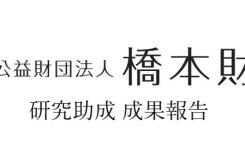 NPO法人岡山県国際団体協議会
NPO法人岡山県国際団体協議会岡山県国際団体協議会の記事を見る
-
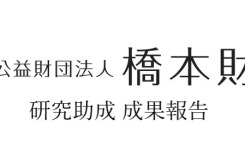 岡山大学 学術研究院 社会文化科学学域 教授東條 光彦
岡山大学 学術研究院 社会文化科学学域 教授東條 光彦東條 光彦の記事を見る
-
 福岡大学 名誉教授田村 和夫
福岡大学 名誉教授田村 和夫田村 和夫の記事を見る
-
 ソシエタス総合研究所 研究員相川 真穂
ソシエタス総合研究所 研究員相川 真穂相川 真穂の記事を見る
-
 一般社団法人京都総合科学研究所 アドバイザー松村 道郎
一般社団法人京都総合科学研究所 アドバイザー松村 道郎松村 道郎の記事を見る
-
 ワラム株式会社 代表取締役加藤 侑子
ワラム株式会社 代表取締役加藤 侑子加藤 侑子の記事を見る
-
 岡山市立操南中学校 教諭/NPO法人国際協力研究所・岡山代表理事竹島 潤
岡山市立操南中学校 教諭/NPO法人国際協力研究所・岡山代表理事竹島 潤竹島 潤の記事を見る
-
 新西横浜街の予防医療ケア研究室 保健師・看護師・元先端バイオ創薬ベンチャー取締役五十嵐 直敬
新西横浜街の予防医療ケア研究室 保健師・看護師・元先端バイオ創薬ベンチャー取締役五十嵐 直敬五十嵐 直敬の記事を見る
-
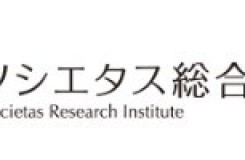 共著橋本俊明・秋吉湖音
共著橋本俊明・秋吉湖音橋本俊明・秋吉湖音の記事を見る
-
 ライター菊池 洋勝
ライター菊池 洋勝菊池 洋勝の記事を見る
-
 大東文化大学国際関係学部・特任教授 高崎経済大学経済学部・非常勤講師 目白大学経営学部経営学科&目白大学大学院経営学研究科 非常勤講師 長崎県佐世保市役所 経済活性化~産業振興に関するアドバイザー、博士(経済学)江崎 康弘
大東文化大学国際関係学部・特任教授 高崎経済大学経済学部・非常勤講師 目白大学経営学部経営学科&目白大学大学院経営学研究科 非常勤講師 長崎県佐世保市役所 経済活性化~産業振興に関するアドバイザー、博士(経済学)江崎 康弘江崎 康弘の記事を見る
-
 ソシエタス総合研究所 研究員秋吉 湖音
ソシエタス総合研究所 研究員秋吉 湖音秋吉 湖音の記事を見る
-
 JICA専門家足立 伸也
JICA専門家足立 伸也足立 伸也の記事を見る
-
 富士通株式会社 第三ファイナンス事業本部 シニアマネージャー安留 義孝
富士通株式会社 第三ファイナンス事業本部 シニアマネージャー安留 義孝安留 義孝の記事を見る
-
 EDAS(イーダス)理事長田村 拓
EDAS(イーダス)理事長田村 拓田村 拓の記事を見る
-
 監督・プロデューサー湯浅 典子
監督・プロデューサー湯浅 典子湯浅 典子の記事を見る
-
 日本経済大学 准教授山下 誠矢
日本経済大学 准教授山下 誠矢山下 誠矢の記事を見る
-
 人と医療の研究室 代表池尻 達紀
人と医療の研究室 代表池尻 達紀池尻 達紀の記事を見る
-
 一般社団法人飛島学園 代表理事堂野 博之
一般社団法人飛島学園 代表理事堂野 博之堂野 博之の記事を見る
-
 ニッセイ基礎研究所 生活研究部 主任研究員、ヘルスケアリサーチセンター・ジェロントロジー推進室兼任金 明中
ニッセイ基礎研究所 生活研究部 主任研究員、ヘルスケアリサーチセンター・ジェロントロジー推進室兼任金 明中金 明中の記事を見る
-
 医療法人財団足立病院 理事長、社会福祉法人あだち福祉会 理事長畑山 博
医療法人財団足立病院 理事長、社会福祉法人あだち福祉会 理事長畑山 博畑山 博の記事を見る
-
 教育研究家、合同会社ライフ&ワーク代表妹尾 昌俊
教育研究家、合同会社ライフ&ワーク代表妹尾 昌俊妹尾 昌俊の記事を見る
-
 ハーバード大学ベス・イスラエル・ディーコネス・メディカルセンター、高度消化管/最小侵襲外科フェロー中元 啓太郎
ハーバード大学ベス・イスラエル・ディーコネス・メディカルセンター、高度消化管/最小侵襲外科フェロー中元 啓太郎中元 啓太郎の記事を見る
-
 ソシエタス総合研究所 主任研究員井上 登紀子
ソシエタス総合研究所 主任研究員井上 登紀子井上 登紀子の記事を見る
-
 ソシエタス総合研究所 研究員松田 郁乃
ソシエタス総合研究所 研究員松田 郁乃松田 郁乃の記事を見る
-
 ソシエタス総合研究所 研究員アイシェ・ウルグン・ソゼン Ayse Ilgin Sozen
ソシエタス総合研究所 研究員アイシェ・ウルグン・ソゼン Ayse Ilgin Sozenアイシェ・ウルグン・ソゼン Ayse Ilgin Sozenの記事を見る
-
 NPO法人岡山市子どもセンター 事務局久川 春菜
NPO法人岡山市子どもセンター 事務局久川 春菜久川 春菜の記事を見る
-
 ユースワーカー(Youth Woker)森分 志学
ユースワーカー(Youth Woker)森分 志学森分 志学の記事を見る
-
 ペンネーム三村 喜久雄
ペンネーム三村 喜久雄三村 喜久雄の記事を見る
-
 ペンネーム黒木 洋一郎
ペンネーム黒木 洋一郎黒木 洋一郎の記事を見る
-
 NPO法人チャリティーサンタ 理事河津 泉
NPO法人チャリティーサンタ 理事河津 泉河津 泉の記事を見る
-
 金沢大学人間社会学域地域創造学類・准教授 、特定非営利活動法人国土利用再編研究所・理事長林 直樹
金沢大学人間社会学域地域創造学類・准教授 、特定非営利活動法人国土利用再編研究所・理事長林 直樹林 直樹の記事を見る
-
 認定NPO法人ペアレント・サポートすてっぷ理事長安藤希代子
認定NPO法人ペアレント・サポートすてっぷ理事長安藤希代子安藤希代子の記事を見る
-
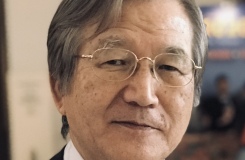 カリフォルニア大学サンフランシスコ校小児胸部心臓外科教授佐野俊二
カリフォルニア大学サンフランシスコ校小児胸部心臓外科教授佐野俊二佐野俊二の記事を見る
-
 社会福祉法人 旭川荘 ひらたえがお保育園 園長江田 加代子
社会福祉法人 旭川荘 ひらたえがお保育園 園長江田 加代子江田 加代子の記事を見る
-
 NPO法人 おかやまUFE 副理事長 ・NPO法人 おかやまUFE 事務局阪井 ひとみ・永松千恵
NPO法人 おかやまUFE 副理事長 ・NPO法人 おかやまUFE 事務局阪井 ひとみ・永松千恵阪井 ひとみ・永松千恵 の記事を見る
-
 社会学者 東京大学名誉教授 認定NPO法人ウィメンズアクションネットワーク(WAN)理事長 上野 千鶴子
社会学者 東京大学名誉教授 認定NPO法人ウィメンズアクションネットワーク(WAN)理事長 上野 千鶴子上野 千鶴子 の記事を見る
-
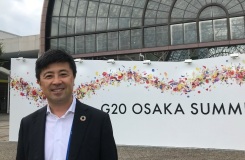 外務省 国際保健政策室長 鷲見 学
外務省 国際保健政策室長 鷲見 学鷲見 学の記事を見る
-
 プロ・アダプティブ・サーファー藤原(旧姓:川上)智貴
プロ・アダプティブ・サーファー藤原(旧姓:川上)智貴藤原(旧姓:川上)智貴の記事を見る
-
 京都大学霊長類研究所 教授正高信男
京都大学霊長類研究所 教授正高信男正高信男の記事を見る
-
 社会医療法人石川記念会HITO病院緩和ケア内科統括部長大坂巌
社会医療法人石川記念会HITO病院緩和ケア内科統括部長大坂巌大坂巌の記事を見る
-
 東京医療学院大学保健医療学部教授上田 諭
東京医療学院大学保健医療学部教授上田 諭上田 諭の記事を見る
-
 「夢を叶える145」ライター宮村孝博
「夢を叶える145」ライター宮村孝博宮村孝博の記事を見る
-
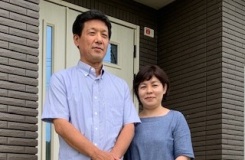 NPO法人 Anneの家 代表 美作地区里親会会員松本芳也・淳子夫妻
NPO法人 Anneの家 代表 美作地区里親会会員松本芳也・淳子夫妻松本芳也・淳子夫妻の記事を見る
-
 特定非営利活動法人あかね 代表理事中山 遼
特定非営利活動法人あかね 代表理事中山 遼中山 遼の記事を見る
-
 大阪市立総合医療センター 緩和医療科部長 兼 緩和ケアセンター長 大阪市立大学医学部臨床准教授 一般社団法人「こどものホスピスプロジェクト」常務理事 日本小児科学会専門医 英国カーディフ大学緩和ケア認定医(Certificate in Palliative Care) 日本緩和医療学会暫定多田羅竜平
大阪市立総合医療センター 緩和医療科部長 兼 緩和ケアセンター長 大阪市立大学医学部臨床准教授 一般社団法人「こどものホスピスプロジェクト」常務理事 日本小児科学会専門医 英国カーディフ大学緩和ケア認定医(Certificate in Palliative Care) 日本緩和医療学会暫定多田羅竜平多田羅竜平の記事を見る
-
 NPO法人 岡山マインド「こころ」/代表理事 一般社団法人お互いさま・まびラボ/副代表理事多田伸志
NPO法人 岡山マインド「こころ」/代表理事 一般社団法人お互いさま・まびラボ/副代表理事多田伸志多田伸志の記事を見る
-
 一般社団法人MY TREE代表理事 MY TREEペアレンツ・プログラムスーパーバイザー 認定フェミニストカウンセラー (公認心理師)中川和子
一般社団法人MY TREE代表理事 MY TREEペアレンツ・プログラムスーパーバイザー 認定フェミニストカウンセラー (公認心理師)中川和子中川和子の記事を見る
-
 兵庫県立ひょうごこころの医療センター精神科医師小田 陽彦
兵庫県立ひょうごこころの医療センター精神科医師小田 陽彦小田 陽彦の記事を見る
-
 独立行政法人国立病院機構福山医療センター院長岩垣博己・堀井城一朗・矢野 平
独立行政法人国立病院機構福山医療センター院長岩垣博己・堀井城一朗・矢野 平岩垣博己・堀井城一朗・矢野 平の記事を見る
-
 岡山大学 教授 文学部長田中 共子
岡山大学 教授 文学部長田中 共子田中 共子の記事を見る
-
 Civil Engineer (仕組みつくりの技術者)石田篤史
Civil Engineer (仕組みつくりの技術者)石田篤史石田篤史の記事を見る
-
 一般財団法人キヤノングローバル戦略研究所 研究主幹・経済学博士松山幸弘
一般財団法人キヤノングローバル戦略研究所 研究主幹・経済学博士松山幸弘松山幸弘の記事を見る
-
 岡山大学生殖補助医療技術教育研究センター ART教育研究部門長・教授舟橋 弘晃
岡山大学生殖補助医療技術教育研究センター ART教育研究部門長・教授舟橋 弘晃舟橋 弘晃の記事を見る
-
 医療法人サンズ理事長浅野 直
医療法人サンズ理事長浅野 直浅野 直の記事を見る
-
 株式会社ヘリオス 代表執行役社長CEO鍵本忠尚
株式会社ヘリオス 代表執行役社長CEO鍵本忠尚鍵本忠尚の記事を見る
-
 慶應義塾大学文学部人間科学専攻教授(医療人類学) McGill大学人類学部・医療社会研究学部Ph.D.北中淳子
慶應義塾大学文学部人間科学専攻教授(医療人類学) McGill大学人類学部・医療社会研究学部Ph.D.北中淳子北中淳子の記事を見る
-
 岡山大学病院 緩和支持医療科片山英樹
岡山大学病院 緩和支持医療科片山英樹片山英樹の記事を見る
-
 岡山市役所 保健福祉企画総務課松岡克朗
岡山市役所 保健福祉企画総務課松岡克朗松岡克朗の記事を見る
-
 近現代史研究家青木康嘉
近現代史研究家青木康嘉青木康嘉の記事を見る
-
 独立行政法人国立病院機構福山医療センター院長岩垣博己・長谷川利路・中島正勝
独立行政法人国立病院機構福山医療センター院長岩垣博己・長谷川利路・中島正勝岩垣博己・長谷川利路・中島正勝の記事を見る
-
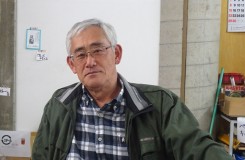 岡山高等学院 副校長 水野文一郎
岡山高等学院 副校長 水野文一郎水野文一郎の記事を見る
-
 社会の仕組み屋、社会の編集者石原 達也
社会の仕組み屋、社会の編集者石原 達也石原 達也の記事を見る
-
 一般社団法人SGSG理事長/中国学園大学子ども学部講師野村泰介
一般社団法人SGSG理事長/中国学園大学子ども学部講師野村泰介野村泰介の記事を見る
-
 一橋大学経済研究所 教授神林 龍
一橋大学経済研究所 教授神林 龍神林 龍の記事を見る
-
 特定医療法人自由会 理事 (社会福祉法人敬友会 理事、公益財団法人橋本財団 理事)橋本 健二
特定医療法人自由会 理事 (社会福祉法人敬友会 理事、公益財団法人橋本財団 理事)橋本 健二橋本 健二の記事を見る
-
 医療法人社団 岡山二人クリニック 理事長、医学博士林 伸旨
医療法人社団 岡山二人クリニック 理事長、医学博士林 伸旨林 伸旨の記事を見る
-
 フリーライター渡辺嗣郎(わたなべ しろう)
フリーライター渡辺嗣郎(わたなべ しろう)渡辺嗣郎(わたなべ しろう)の記事を見る
-
 国立大学法人岡山大学 副理事(国際担当)横井 篤文
国立大学法人岡山大学 副理事(国際担当)横井 篤文横井 篤文の記事を見る
-
 ペンネームドクターX
ペンネームドクターXドクターXの記事を見る
-
 NPO法人 山村エンタープライズ 代表理事藤井裕也
NPO法人 山村エンタープライズ 代表理事藤井裕也藤井裕也の記事を見る
-
 キャンサー・ソリューションズ株式会社 代表取締役社長桜井 なおみ
キャンサー・ソリューションズ株式会社 代表取締役社長桜井 なおみ桜井 なおみの記事を見る
-
 AMDA(アムダ) グループ代表・認定非営利活動法人AMDA 理事長菅波 茂
AMDA(アムダ) グループ代表・認定非営利活動法人AMDA 理事長菅波 茂菅波 茂の記事を見る
-
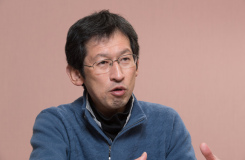 ふれあい歯科ごとう代表五島 朋幸
ふれあい歯科ごとう代表五島 朋幸五島 朋幸の記事を見る
-
 介護従事者髙田 浩一
介護従事者髙田 浩一髙田 浩一の記事を見る
-
 ケアマネ-ジャー・社会福祉士かえる ちから
ケアマネ-ジャー・社会福祉士かえる ちからかえる ちからの記事を見る
-
 五常・アンド・カンパニー株式会社 代表取締役社長慎 泰俊
五常・アンド・カンパニー株式会社 代表取締役社長慎 泰俊慎 泰俊の記事を見る
-
 NPO法人 ポケットサポート代表理事三好 祐也
NPO法人 ポケットサポート代表理事三好 祐也三好 祐也の記事を見る
-
 医療法人 寺田病院 院長板野 聡
医療法人 寺田病院 院長板野 聡板野 聡の記事を見る
-
 鳥取市立病院 地域医療総合支援センター 生活支援室 副室長、リハビリテーション部 副部長、歯科 医長目黒 道生
鳥取市立病院 地域医療総合支援センター 生活支援室 副室長、リハビリテーション部 副部長、歯科 医長目黒 道生目黒 道生の記事を見る
-
 鳥取市立病院地域医療総合支援センター長 鳥取市福祉部参与足立 誠司
鳥取市立病院地域医療総合支援センター長 鳥取市福祉部参与足立 誠司足立 誠司の記事を見る
-
 ペンネーム池井戸 高志
ペンネーム池井戸 高志池井戸 高志の記事を見る
-
 ペンネーム池田 出水
ペンネーム池田 出水池田 出水の記事を見る
-
 岡山大学大学院ヘルスシステム統合科学研究科教授松岡 順治
岡山大学大学院ヘルスシステム統合科学研究科教授松岡 順治松岡 順治の記事を見る
-
 鳥取市立病院 名誉院長田中 紀章
鳥取市立病院 名誉院長田中 紀章田中 紀章の記事を見る
-
 岡山大学大学院保健学研究科 副研究科長 教授齋藤 信也
岡山大学大学院保健学研究科 副研究科長 教授齋藤 信也齋藤 信也の記事を見る
-
 公益財団法人橋本財団 理事長、医学博士橋本 俊明
公益財団法人橋本財団 理事長、医学博士橋本 俊明橋本 俊明の記事を見る

